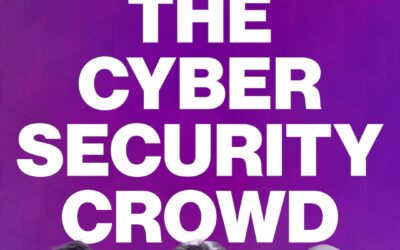“Growing and developing the blockchain ecosystem in New Jersey.” – Lindsley Medlin.
Lindsley Medlin is the Founder of the NJ Blockchain Center. One of the biggest challenges in this space is education. Deloitte did a study that the single biggest reason for non-acceptance at the executive level is knowledge and understanding of the technology. NYU, Stanford, Berkley, MIT have classes in this space. New Jersey is extremely far behind and NJ Blockchain Center will allow for people in New Jersey to understand the technology, connect to others, and educate. Lindsley started by doing speeches, educating, and presenting to organizations, schools, and community groups. He is also working on putting together a curriculum to get into NJ universities to stay on top and be able to compete in this space.
Lindsley spoke with us on May 22nd, which happened to be “Bitcoin Pizza Day.” What’s that you might ask? Well on May 22nd, 2010 one of the developers for Bitcoin traded 10,000 bitcoin for 2 pizzas, which was approximately $44 at that time. At today’s prices that would be $80 Million. Most expensive pizza ever!
He also recently attended the Annual Blockchain Conference in New York City. He talks about NYC Blockchain Week, with the main event being a conference called Consensus put on by CoinDesk. CoinDesk is a news and reporting website that can give someone coming into the field a great overview of what is going on in the blockchain world. In 2018 at the height of the Bitcoin craze, there were around 10,000 attendees. Because we are not in the hype of ICOs (Initial Coin Offerings) this year, there were only around 5,000 attendees. The people that are left are the diehards of technology and cryptocurrency, that believe in the power that blockchain is going to have on multiple industries.
What does the future of blockchain look like?
Enterprise solutions are being built and deployed, and new developments in cryptography and algorithms are being used. STOs (Security Token Offerings) are taking real-world assets and securing them and digitalizing them on the blockchain to make them frictionless and offer greater liquidity. For example, organizations are “tokenizing” real estate. Commercial buildings or private investment properties. So rather than selling the property, they can break it into chunks of $1,000 tokens. The individuals that want to invest in a property do not have to buy the whole property. Instead, they can buy as many tokens as they want and those tokens can be traded at any time amongst other people without having a closing transaction.
This opens the door to people who never had the opportunity to gain access to these asset classes but have the interest to be part of it. It allows owners of the asset to take their cash back out and still own 50% of the asset. This Security Tokenization (STO) is being discussed for high-value artwork, debt-instruments, or tokenizing the stock shares of everyday companies. To remove the clearing process of 3-7 days creates a seamless, liquid transaction.
ICO (Initial Coin Offering) companies looking to raise funds to develop blockchain and cryptocurrency platforms to pay for development. The SEC has started to scrutinize these heavier and they have been deemed to be securities by the SEC.
How is blockchain technology used in business?
At its core, blockchain is a digital ledger. A ledger is used for tracking transactions. The supply chain market is still very fragmented and they don’t use systems that are online or linked together. So the ability to take the supply chain process and put it onto a blockchain solution, allows everyone in that process to have full visibility and transparency into what is going on at that exact second. Tying in the cryptography, it allows that entire process and transfer of data, goods, services, to be secure because it can’t be changed, forged, or altered after it has been stored on the blockchain. If someone in the supply chain process decides they want to go back and change the documents for whatever reason, in a paper-based or database system they control, they can do that. The blockchain takes that out of the equation.
IBM and Walmart have been doing a lot of work in this area of supply chain. Walmart is piloting its blockchain based supply chain. They’ve mandated that all of their leafy green vegetable participants will be on their blockchain product. We should start to see costs come down due to the increased efficiencies.
IBM & Maersk did a study that 20% of shipping costs are due to the paper pushing of the different participants within the supply chain. When you buy a piece of property you take title to that property and that record gets stored in a land office. Typically the municipality maintains those records. When those paper documents are stored they are susceptible to fraud. Anyone walking into the office could bribe that individual. Unfortunately, you wouldn’t know it until you go to sell your property and find out you don’t own it anymore.
You also have a title insurance process, involved on average $400 in the closing process of purchasing a property. Currently, Sweden and the UK are working on putting and storing their land records on the blockchain.
Other real-world implications of this are for example when Haiti was hit with a hurricane. The building that contained all of their land records was destroyed. Just having the records on a digital system would have allowed them to have better backups.
What are some challenges to cryptocurrency?
The user interfaces are not that intuitive. It’s difficult for merchants to accept cryptocurrency. Once they accept it, they have to decide what they are going to do with it. Convert it to US dollars or keep in crypto.
Last week at Consensus, an application was discussed that allows users and customers to spend cryptocurrency at major retailers. This allows the retailers to accept cryptocurrency and ties into an exchange. Allowing it to be automatically converted into US dollars. The application facilitates the transaction and makes it easier on both sides. People have bought cars, boats, houses all with cryptocurrency.
Small businesses around the world, like cafes, that have started accepting Bitcoin have seen their businesses grow by as much as four hundred percent. People needed a place to spend it and support the businesses that support crypto.
Here in NJ, you can look online for Bitcoin ATMs and buy cryptocurrency.
What advice would you give to students?
Kids are already using digital currencies in gaming. What is coming over the horizon and how can you prepare? What are the jobs of the future and what are the skills needed to have the jobs of the future?


